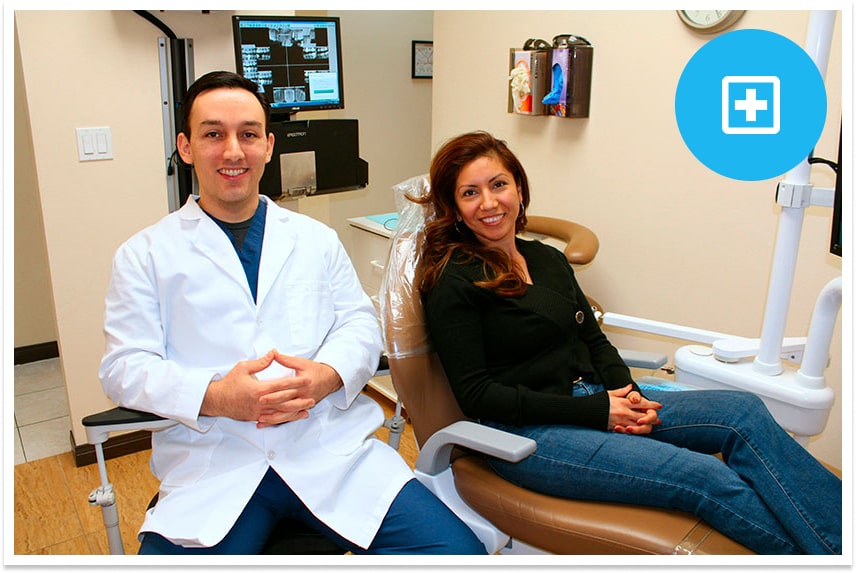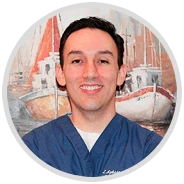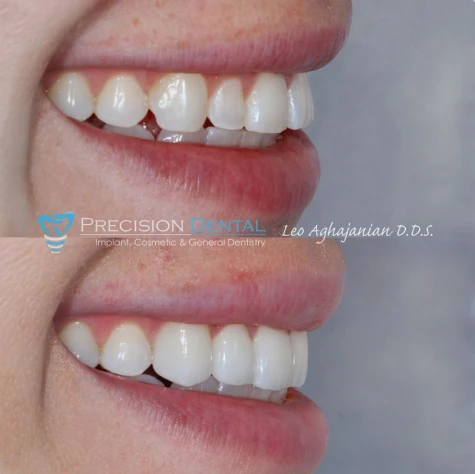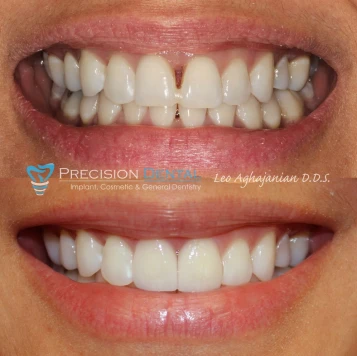Dental Emergency
In case of a dental emergency, you should definitely contact our dental office in Glendale, do not try to remedy the situation yourself. Sometimes the situation is made worse by trying to do something about it at home or ignoring the situation.
Emergencies can come in different forms, such as a knocked-out tooth, chipped tooth, pain, swelling of the face, etc. In case of a tooth that gets knocked-out if you act quickly enough, you can have it replanted into the socket without losing the tooth. In cases of pain and swelling, you must get a proper diagnosis to have the proper course of treatment, and for that, you need to come to the office for x-rays and an exam.

How To Handle Dental Emergencies:
Toothaches: Wash your mouth with warm water to relieve the pain. One of the first things you should do is to make sure that your mouth is clean and that there are no food remnants that can make this area uncomfortable. Very cold or very hot water can hurt your mouth, so definitely use warm water.
Knocked-out tooth: The first thing to do is ensure your hands are clean, so wash them with soap and water. Then, grab the tooth by the crown (not the root) and clean it with water to disinfect it. After this, put it in a container with serum or saliva to keep it in excellent condition. Once you are at the dentist's office, he will put the tooth back in its original place.
Displaced teeth: The best thing to do is to go to an emergency dentist immediately, given the fact that the most common causes for displaced teeth are gingivitis, periodontitis and acute trauma. Your Glendale dentist will study the particular issue and decide what the best possible treatment is to avoid pain and tooth loss.
Broken, chipped or cracked teeth: If you’re in pain due to a broken, chipped or cracked tooth, take an over-the-counter pain reliever. If possible, keep the part of the tooth that has been broken and take it to the dentist as soon as possible.
Tissue injuries: These types of injuries are very common in children, and the treatment depends on the severity of the case. Tissue injuries should be treated as conservatively as possible to reduce the potential after-effects.
Crown and bridges off: If you feel that your dental crown or bridge is falling off, you will have to try to recover it to avoid swallowing it. However, if this happens, there is nothing to worry about, since the crown will pass through the digestive tract without problems. Of course, it will have to be replaced by another one.
Denture problems: If you try to adjust your dentures yourself, you risk irreparably damaging them. Since dentures are expensive, you could also lose a lot of money if you try to sand, file or bend them yourself. It is always best to ask a prosthodontist or dentist to adjust them!
Objects caught between teeth: The best way to eliminate foreign objects clenched between your teeth is by using dental floss. The use of tooth floss after each meal is very useful to adequately get rid of the food caught between your teeth without hurting your gums or damaging enamel.
Broken braces and wires: The first thing you need to do is to schedule a dental appointment as soon as possible. While this happens, you can:
- Apply orthodontic wax to the area that’s been broken to prevent your mouth from rubbing.
- If the bracket has fallen off, save it and take it to your next dental appointment if possible.
- If the wire is broken or dislodged, move it with your hand or use tweezers to set it up in its original position. Apply wax to it.

If you have a dental emergency
CALL US!
(818) 545-8923








